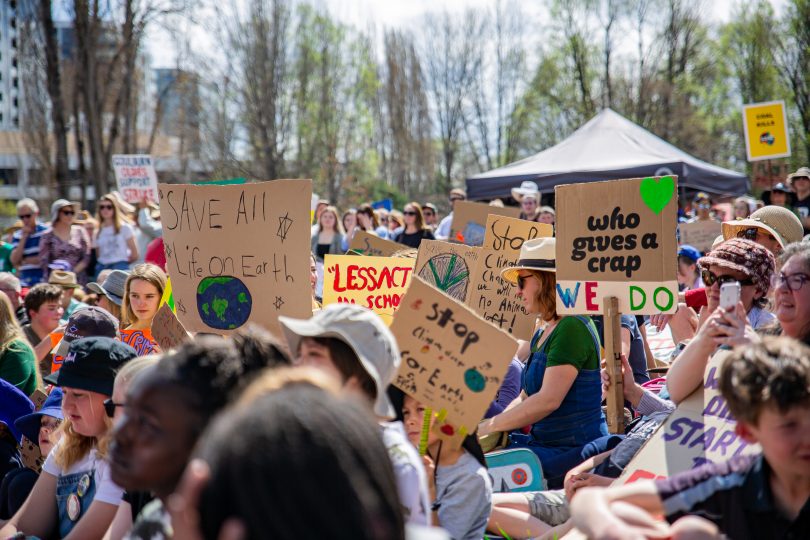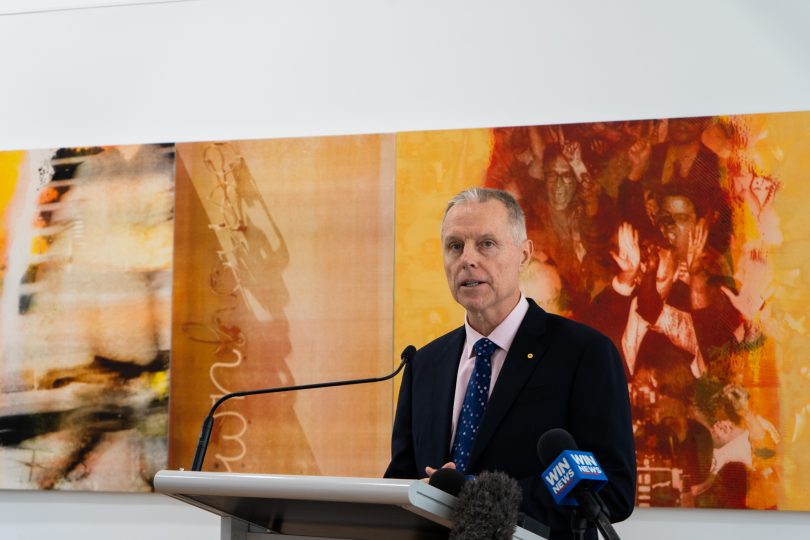
Whether or not young people want to vote, the ACT Electoral Commission is firmly opposed to lowering the ACT’s voting age to 16. Photo: File.
A proposal to open voting in ACT elections to 16 and 17-year-olds is currently being examined by the ACT Government, but it’s found a staunch opponent in the ACT Electoral Commission.
Electoral Commissioner Damian Cantwell told the first public inquiry into the bill last week that the Commission has a “number of reasons” for its opposition to the proposal, which was put forward by ACT Greens MLAs Andrew Braddock and Johnathan Davis.
“Whilst recognising the intent behind the bill and the benefit it would offer to some in this age group, that needs to be balanced against the significant negative issues that compulsory enrolment in voting would bring,” Mr Cantwell said.
The Commission is particularly concerned about the administrative burden of managing a situation if the ACT was to become non-aligned with the Commonwealth and other state and territories.
“To establish a separate electoral roll for 16 and 17-year-olds would require some additional costs and administration effort,” Mr Cantwell explained.

ACT Electoral Commissioner Damian Cantwell said neither he nor the Commission can support lowering the voting age to 16. Photo: Region Media.
Of significant concern is the issue of mandatory voting.
Last year, an ACT Greens proposal to lower the voting age failed to garner support from Labor as it had proposed making voting voluntary for under-18s.
The Greens have now revised that position and suggested the fine for failing to vote should be only $10.
But Mr Cantwell said the Commission is concerned about creating a situation in which minors who fail to vote have to become engaged with the judicial system.
“I want to make it clear, a failure to enrol and vote by a 16 or 17-year-old will be a criminal offence which may result in criminal court proceedings heard in the ACT Children’s Court and the imposition of a fine, conviction or other sentence if found guilty,” he told the inquiry.
Mr Cantwell was questioned by committee chair Jeremy Hanson, who asked if it was the Electoral Commission’s position that a “whole bunch of kids fronting court, being fined and getting convicted isn’t a great advert for democracy and voting in the ACT?”
“Essentially, yes,” Mr Cantwell responded.
“We need to consider how that would be viewed by individuals, their parents or guardians and how we would wish to consider that more broadly as a society.”
In the last ACT election in 2020, there were initially around 24,000 non-voters.
“Right now, there’s around 1400 who are now still subject to the processes arising for non-voting in the ACT election … [which will go through] the ACT Magistrates Court,” Mr Cantwell told the committee.
The ACT Electoral Commission also does not believe it is adequately funded with either staff and resources to run education campaigns in schools, as well as the additional enrolment drives necessary.
“The school curriculum would be subject to control and resourcing of the Education Directorate,” Mr Cantwell said.
The Commission is also worried about the possibility of a 16-year-old standing for election in the Legislative Assembly, although Mr Davis has previously said he didn’t think this was likely.
Mr Braddock and Mr Davis’ bill has still got some way to go before it is debated in the Legislative Assembly later this year, but it’s already received more support than a similar proposition last year as it will now make voting compulsory for all electors.
Last year the Standing Committee on Justice and Community Safety recommended the voting age should remain 18, although the ACT Government didn’t accept that response, saying it was committed to examining extending the franchise to younger voters.
This time, ACT Labor supports compulsory voting, although it does not yet have a definitive position on extending voting rights to younger teenagers.
The Canberra Liberals’ submission scorned the proposition, saying it was simply an attempt by the Greens to increase their vote.
Original Article published by Lottie Twyford on Riotact.




